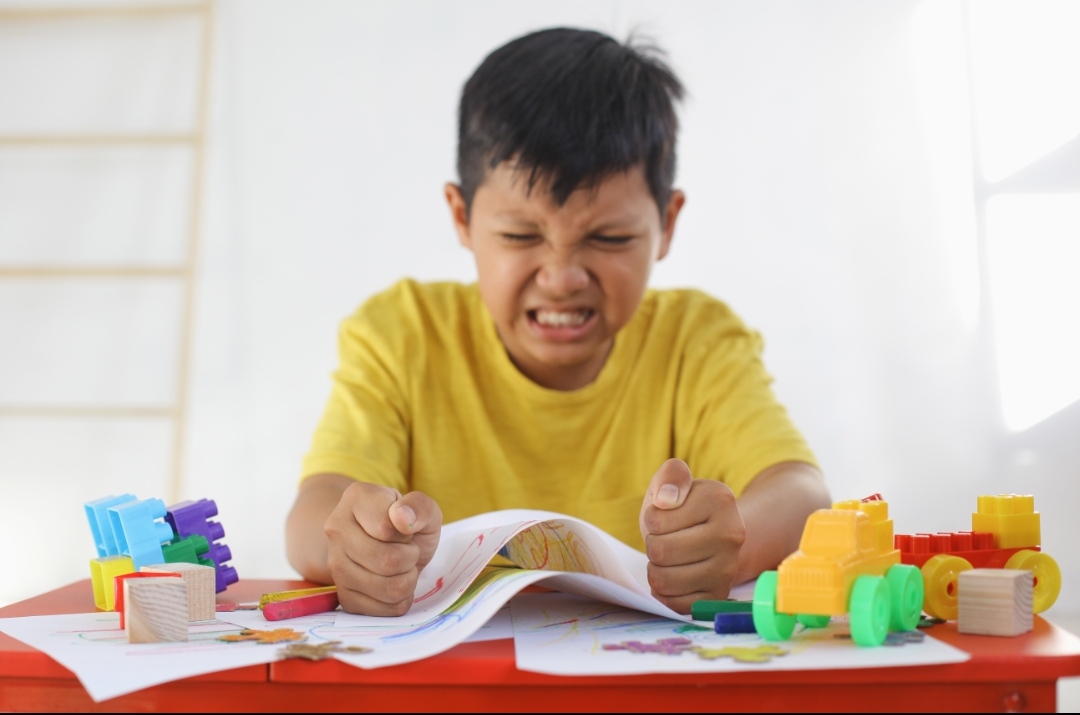– By Dr. Jetson Satya Gospel
My 4 year old gets angry easily. She throws things and shouts. How do I help her manage her anger? Do my kids need anger management or do I?
Let’s start our discussion with a dialogue between a Dad and his 4 year old daughter.
Dad: Hey Dear! Do you realize what time it is? Isn’t it time to bed? You are still digging on the mobile!
Daughter: I want to finish this game Daddy.
Dad: Do you honestly believe that that is a good excuse?
Daughter: Not at all–that is what I like to do now.
Dad: How many times do I have to ask you to hit the bed soon?
Daughter: Daddy I see you doing that too!
Dad: That’s beside the point.
Daughter: Starts crying …. (Action)
Dad: Next time you use the phone before bed, there will be consequences.
Daughter: Throws the mobile……… (Action)
Dad sighs with sadness and is about to scold his daughter
Let us stop the conversation between the Dad and the daughter here.
Some kids simply lose their temper from time to time, but other kids seem to remember things more negatively when things don’t go their way. The majority of the time, parents will need to provide additional support to their children to deal with their behaviour. Few would argue the fact that rage and aggression continue to rank among the most important and challenging issues faced by our society, even though official rates of aggression and violence among kids, teens and adults have decreased from their peak level.
Controlling quick reactions can be hard for young children and supporting them can be sometimes difficult for the parents. That is undoubtedly challenging. In any case, keep in mind that you’re trying to teach your children how to deal with anger. If you yell or give in, you’ll demonstrate the same behaviour you are trying to discourage. Your children will observe and witness your own incapability to deal with anger.
So, what can parents do? Here are some tips to deal with anger management issues in your child:
Handling your own irritation: Your behaviour sets an example for your child. When you handle yourself well, it will teach kids to do the same.
Directing feelings and overseeing conduct: These are abilities that foster gradually over time in parenting. Similar to several other skills, your kids should practice and learn them with your help.
Trying to be your kid’s partner: Both parents can support their children to overcome their unpleasant attitudes. Parents can partner with their kids in understanding what troubles them and what cause them to be angry, first. Then they can come up with strategies for the children to cope with their anger.
Modelling anger management: How you behave reflects on your children. When your child acts up, if you respond by screaming and shouting, that only encourages them to do the same. Be a role model in how you react towards your child’s anger and your child will learn to manage his anger better.
Making rules clear and sticking to them: Having guidelines at home is vital for a child’s development. Abiding by them is crucial too, for instance, you could say “No phones after 9pm”. Provide consequences for their actions.
Taking breaks: If you become angry or emotional, try to leave the child in another responsible adult’s hands and take some time off from the situation.
Resting: Ensure kids get sufficient rest. Rest is vital for their growth and development.
Keeping them active: Children that have strong attitudes can benefit much from dynamic play. Encourage your child’s favorite sports and outdoor activities. Let them spend their energy usefully and stimulate their intellect.
Here are some model conduct rules to try:
In our family, we don’t strike or yell in an offensive manner
- There’s no shouting permitted.
- You may not toss things or break things deliberately.
Most kids can learn strategies for managing their anger effectively. Talking to other adults about how they raise their children, as well as with teachers, school counsellors, and mentors, may be helpful. If the situation becomes out of hand and unnatural, your child’s primary care physician may recommend a professional counsellor.
References
- Nelson, W. M. III, Finch, A. J., Jr., & Ghee, A. C. (2012). Anger management with children and adolescents. In P. C. Kendall (Ed.), Child and adolescent therapy: Cognitive-behavioral procedures (pp. 92–139). Guilford Press
- Kendall, P. C. (Ed.). (2011). Child and adolescent therapy: Cognitive-behavioral procedures. Guilford Press.
- Rodriguez, C. M., & Green, A. J. (1997). Parenting stress and anger expression as predictors of child abuse potential. Child abuse & neglect, 21(4), 367-377.
- Holden, E. W., Willis, D. J., & Foltz, L. (1989). Child abuse potential and parenting stress: Relationships in maltreating parents. Psychological Assessment: A Journal of Consulting and Clinical Psychology, 1(1), 64.
- Burrell, B., Thompson, B., & Sexton, D. (1994). Predicting child abuse potential across family types. Child Abuse & Neglect, 18(12), 1039-1049.
- https://www.nhs.uk/mental-health/children-and-young-adults/advice-for-parents/help-your-child-with-anger-issues/
- https://www.ncbi.nlm.nih.gov/pmc/articles/PMC4808268/
- https://www.eslfast.com/robot/topics/dailylife/dailylife19.htm









